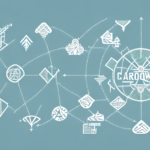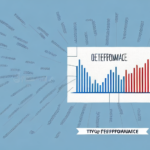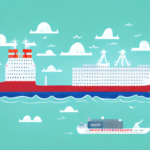Introduction to Courier Services
Courier services play a pivotal role in the global economy by enabling the swift and secure delivery of goods, documents, and other materials across various distances. In today’s interconnected world, the efficiency of courier services directly impacts business operations, customer satisfaction, and overall economic growth.
Importance in Today's Economy
The rise of e-commerce and global trade has significantly increased the demand for reliable courier services. According to a report by Statista, the global courier services market is projected to reach a value of over $520 billion by 2025. This growth underscores the essential role couriers play in facilitating commerce and connecting businesses with consumers worldwide.
Key Features of Modern Courier Services
- Real-Time Tracking: Allows customers to monitor their shipments in real-time, enhancing transparency and trust.
- Same-Day and Next-Day Delivery: Meets the increasing demand for rapid delivery options.
- Specialized Handling: Ensures the safe transport of fragile, perishable, or high-value items.
- International Shipping: Expands the reach of businesses by enabling cross-border deliveries.
Evolution of Courier Services
Historical Overview
The concept of courier services dates back to ancient civilizations. The Egyptians, Greeks, and Romans utilized runners and relays to deliver messages and goods over long distances. These early systems laid the groundwork for modern courier operations.
Impact of the Industrial Revolution
The Industrial Revolution brought significant advancements to courier services. The introduction of railways and steamships in the 19th century enabled faster and more reliable delivery of goods and correspondence, significantly expanding the scope and efficiency of courier operations.
Modern Developments
In the 20th and 21st centuries, technological innovations such as automobiles, airplanes, and the internet revolutionized courier services. Today, automation, artificial intelligence, and digital platforms have transformed logistics, making courier services more efficient and adaptable to changing market demands.
Types of Courier Services
Standard vs. Same-Day vs. Next-Day Delivery
- Standard Courier Service: Suitable for non-urgent deliveries with flexible delivery times.
- Same-Day Courier Service: Ideal for urgent deliveries that need to be completed within the same day.
- Next-Day Courier Service: Ensures delivery by the next business day, balancing speed and cost.
International Courier Services
International courier services facilitate cross-border trade by providing customs clearance, duty management, and secure handling of international shipments. These services are essential for businesses looking to expand their global footprint.
Specialty Courier Services
Specialty couriers cater to specific industries and requirements, such as medical, legal, and fragile item deliveries. They offer tailored solutions to handle specialized packaging and ensure the safe transport of sensitive or valuable items.
Benefits of Using Courier Services
Efficiency and Reliability
Courier services offer unparalleled efficiency and reliability, ensuring that shipments arrive on time and in good condition. This reliability is critical for maintaining business operations and customer trust.
Handling Fragile and Valuable Items
Unlike traditional postal services, courier companies provide specialized packaging and handling services to safeguard fragile and high-value items, reducing the risk of damage or loss.
Cost-Effectiveness
By optimizing delivery routes and leveraging economies of scale, courier services can often provide cost-effective shipping solutions for businesses of all sizes. This helps businesses manage their logistics expenses while maintaining quality service.
Technological Advancements in Courier Services
Real-Time Tracking
Real-time tracking technology allows both businesses and customers to monitor shipments in real time. This feature enhances transparency and enables proactive management of delivery schedules. According to a McKinsey report, real-time visibility in logistics operations can lead to a 30% improvement in supply chain efficiency.
Automation and AI
Automation and artificial intelligence are transforming courier operations by optimizing routing, predicting delivery times, and automating customer service interactions. These technologies reduce operational costs and improve delivery accuracy.
Mobile Applications
Mobile applications provide customers with convenient access to courier services. Users can schedule pickups, track deliveries, and receive notifications through intuitive mobile interfaces, enhancing the overall customer experience.
Choosing the Right Courier Service Provider
Factors to Consider
- Delivery Speed: Assess the delivery options available to meet your business’s timeline requirements.
- Reliability: Choose providers with a proven track record of on-time deliveries and minimal loss or damage.
- Pricing: Compare pricing structures to find a service that fits within your budget while meeting your quality standards.
- Tracking Capabilities: Ensure the provider offers robust tracking systems for real-time shipment monitoring.
- Customer Support: Reliable customer support is essential for resolving issues and ensuring smooth operations.
Comparative Analysis of Major Providers
When selecting a courier service, it’s important to compare the features and offerings of major providers such as UPS, FedEx, DHL, and local courier services. Consider factors like delivery network coverage, service variety, pricing, and customer reviews to make an informed decision.
Balancing Cost and Quality
Finding the right balance between cost and quality is crucial. While cost-effective services can reduce expenses, it’s important to ensure that quality is not compromised. Evaluate service level agreements (SLAs), customer feedback, and performance metrics to determine the best value for your business.
Future Trends in Courier Services
Innovations in Delivery Methods
The future of courier services will likely see the adoption of autonomous vehicles, drones, and robotic delivery systems. These innovations promise to enhance delivery speed, reduce costs, and expand service reach.
Sustainability Initiatives
With increasing emphasis on environmental sustainability, courier companies are investing in eco-friendly practices. This includes the use of electric vehicles, optimized routing to reduce carbon emissions, and sustainable packaging solutions.
Integration with E-commerce
The continuous growth of e-commerce will drive further integration between online retailers and courier services. Enhanced partnerships and seamless logistics solutions will be essential to meet the rising demands of online consumers.
Conclusion
Courier services are a cornerstone of the global economy, enabling efficient and reliable delivery of goods and information. Understanding the evolution, types, benefits, and technological advancements in courier services is essential for businesses seeking to optimize their logistics operations. By carefully selecting the right courier service provider and keeping abreast of future trends, businesses can ensure they remain competitive and responsive to the dynamic demands of the marketplace. As technology continues to advance, the courier industry will evolve, offering even more innovative solutions to meet the needs of businesses and consumers alike.




















